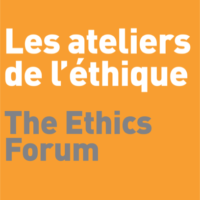
Call for papers – “The Ethics and Politics of Trauma, Resilience and Repair”
(La version française est ici.)
Les Ateliers de l’éthique / The Ethics Forum
Call for papers
The Ethics and Politics of Trauma, Resilience and Repair
Symposium edited by Sophie Bourgault (U d’Ottawa) et Éléonore Paré (U d’Ottawa et U de Picardie J-V)
If resilience discourse has over the years been the target of numerous criticisms within political philosophy and the social sciences (Walker and Cooper 2011; Carton 2013; Chandler and Reid 2016; Bracke 2016), resilience itself remains central as a form of adaptation and source of solidarity within certain marginalized communities (Herman 1997; Solnit 2010; Weaver 2023). The language of resilience has unmistakably been co-opted by neoliberalism, but researchers in critical psychiatry and psychology nevertheless still view it as a mode of resistance—most notably in colonial contexts where survival is tested daily, or within communities targeted by hate crimes (Jabr 2019; Malatino 2019; Seechi & Seechi 2021). Thus, depending on the context requiring resilience (uprooting, migration, colonialism, precarity, trauma, etc.), resilience cannot necessarily be seen as a ‘docile’ acceptance of suffering, but could – in cases where there are networks of support – constitute a force for survival or even social transformation (e.g. Simich & Andermann 2014; Ionescu 2013; Hall & Lamont 2013).
Invoking the concept of resilience thus requires us simultaneously to reflect on the discreet violence done to certain groups and on the means used to co-opt and/or make invisible the various forms of survival and resistance of these groups. As such, studying resilience requires a joint reflection on traumatic experiences and ‘ordinary’ oppressions, as well as on the political, social and economic conditions that make this resilience possible or not (Fassin and Rechtman 2009; Alexander 2012; Hamrouni and Milot 2022; Pain 2022). As is the case with resilience, invocations of trauma as a diagnosis and as a lived experience have ethico-political implications: the use of a trauma diagnosis can, for instance, be employed to gain access to certain rights or to reparations (Fassin and Rechtman 2009, 10). But if the diagnosis of trauma can serve to make certain experiences of violence or oppression more visible, it does not always guarantee their being offered credibility. The moral economy of trauma is complex, as are those of resilience and repair.
This call for papers wishes to invite contributions on the following (non-exhaustive) list of questions:
- What are the differences between clinical/psychological accounts and philosophical accounts (philosophy, phenomenology, political thought) of resilience? What can we learn through a dialogue between these accounts and between various research disciplines?
- From a historical and/or political perspective, how have feminist and decolonial theories shaped new definitions of resilience in the face of different forms of oppression and/or collective trauma? To what extent do disability studies and trans studies provide new insights for theorizing trauma and resilience? What is the contribution of ‘disaster studies’ to the study of resilience and repair in political philosophy?
- How can we avoid the co-optation of the terms ‘trauma’, ‘resilience’ and ‘reparation’?
- What roles can the arts, theater or literature play in processes of repair and healing? How should we envision the ties between trauma and memory? What are the connections between care and repair?
- What collective arrangements are necessary for resilience in the face of disasters (ecological, health, economic, etc) or of collective trauma? What institutional and infrastructural means are necessary to deal with “the unlivable” and/or to compensate for forms of vulnerability that build over time (Butler & Worms 2021)?
- To what extent are the concepts of resilience or trauma shaped by transformations in social, political and cultural contexts?
- Is it appropriate to assert that we live in a ‘culture of trauma’? What are the ethical and political implications of such a label?
This multidisciplinary issue would like to bring together the work of researchers from philosophy, political science, ethics, sociology, gender studies, literature, psychology and any other relevant field.
Proposals submission date: March 1, 2025
Abstracts may be in English or French. Proposals should not exceed 350 words (excluding bibliography) and should include a working title. Authors will be contacted by March 31 about the acceptance (or rejection) of their proposals.
Deadline for article submissions: October 1, 2025
Submissions may be in English or French, and should be between 6,000 and 8,000 words in length.
Please submit your proposals to: sbourgau@uottawa.ca and epare032@uottawa.ca
Formatting: Please follow Les Ateliers de l’éthique/The Ethics Forum submission guidelines available on their website: https://www.lecre.umontreal.ca/wp-content/uploads/2014/07/consignes-aux-auteurs-2014_mise-en-page-1.pdf
For any questions, you can contact Sophie Bourgault (sbourgau@uottawa.ca) or Éléonore Paré (epare032@uottawa.ca)



